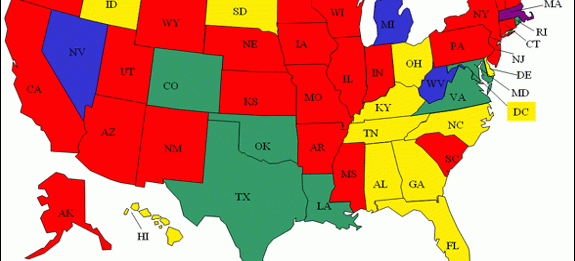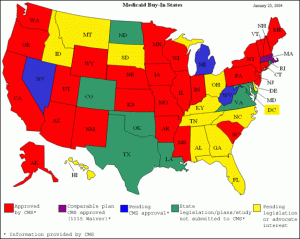Trudy Lieberman, a journalist for more than 40 years, is an adjunct associate professor of public health at Hunter College in New York City. She had a long career at Consumer Reports specializing in insurance, health care, health care financing and long-term care. She is a longtime contributor to the Columbia Journalism Review and blogs for its website, CJR.org, about media coverage of health care, Social Security and retirement. As a William Ziff Fellow at the Center for Advancing Health, she contributes regularly to the Prepared Patient Forum blog…more.
– Prepared Patient Forum
Most importantly however, Trudy Lieberman is a senior, frustrated with Medicare, insurance companies and their efforts to simplify the understanding of coordinating care. In her article, More Confusion about those Insurance EOBs– This Time from Medicare it is quite clear that she has a hard time understanding how Medicare and insurance companies coordinate benefits…..and look what she did for a living! That should be a very powerful statement about how difficult it must be for seniors. Truth be told it seems ridiculous! If Ms. Lieberman is having difficulty than what chance does the average senior have? Why is it so difficult for Medicare and insurance providers to make the explanation of benefits,or EOBs comprehendible?
In case you’re new to Managed Care Consultants, here is a little information about us. We are a group of qualified health care professionals that take a lot of pride in educating seniors about Medicare and how they coordinate benefits with their current health plan. We host seminars, consultations, public speaking events and the like at retirement communities, senior centers and pretty much wherever seniors congregate. During my time working as a quality development specialist at a health insurance consulting firm I came up with the idea of starting my own educational resource guide for seniors when I began to notice a disturbing trend – More seniors, than I realized, were knowingly enrolling into health care plans due to lower premiums without understanding how benefits were coordinated with Medicare or what they would be financially responsible for. Health insurance agents didn’t take enough time to carefully explain what seniors were signing up for and why, they would simply send out the EOBs and wipe their hands clean. Insurance companies and agents are more concerned with enrolling a new member than they are in making sure the plan selected is in the best interests of the individual. This is a very big problem, not to mention extremely careless. Here’s a thought for you though….what other choice do seniors have? Many rely on income from Social Security which can be very limited and often puts them between a rock and a hard place when deciding between paying bills and buying food or continuing to pay rising health care premiums. This doesn’t leave them with much of an option. So they mull over countless pages of information regarding available health care plans in their area, and they try and compare them to the plans they currently have. They struggle to understand how they are similar, but more importantly how they’re different. Now, of course, if the premium is lower it looks more attractive, but why? Is there something that they are missing? Truth be told, yes. Well then what is it? This is what Managed Care Consultants strives to offer to the senior community. Knowledge and understanding.
As alluded to by Trudy in her article (which, if you haven’t please read) Medicare and insurance companies are a pain to deal with. When claims forms are delivered to the member, coordination between the insurance provider and Medicare is almost non-existant. There are separate forms for each which makes understanding who paid what more difficult. Whenever you as a consumer reach out to clarify this issue they either put you on hold, answer your question in a way that is still confusing, transfer you to another agent or refer you to your insurance company to answer your questions. This is time consuming and extremely annoying. All consumers want is clarification for a product they are paying for and they cannot even get that without jumping through hoops! Where is the customer service?!!! It’s no wonder seniors are fed up and angry. I don’t blame them, they have every right to be. They don’t have the time or the patience to deal with this….they are retired. They should be spending their time with grand children, their loved ones, traveling or enjoying life at this point in their lives. Instead, they are compounded with confusing claims statements about their health insurance plan and Medicare (which is a social insurance protection plan established for them!) Oh, by the way, did I mention that this was an EOB that was delivered after the ACA and Medicare made extensive efforts to simplify the wording? And yes, I did hold that piece of information on purpose. Here’s why….
 Even after CMS and Medicare have made the effort to reach out to insurance companies in hopes of getting them to simplify the terminology used to explain benefit structure and financial responsibility in health care plans, their efforts have bore little fruit. It’s still a hassle to deal with. Most seniors wish they don’t have to, however, when living on Social Security seniors are pigeon-holed into forecasting their out of pocket expenses for the year regarding their health care. This requires an understanding of coordination of benefits: who pays what and how much. Seniors obviously aren’t getting this understanding from Medicare or their respective insurance company, which begs one to ask ” how do they find out, how do they educate themselves and where?”
Even after CMS and Medicare have made the effort to reach out to insurance companies in hopes of getting them to simplify the terminology used to explain benefit structure and financial responsibility in health care plans, their efforts have bore little fruit. It’s still a hassle to deal with. Most seniors wish they don’t have to, however, when living on Social Security seniors are pigeon-holed into forecasting their out of pocket expenses for the year regarding their health care. This requires an understanding of coordination of benefits: who pays what and how much. Seniors obviously aren’t getting this understanding from Medicare or their respective insurance company, which begs one to ask ” how do they find out, how do they educate themselves and where?”
I wish there were an easier way, and I will try my best to make it as simple as possible, but the only avenue I see as being effective is to educate yourself or those who manage your health care. As consumers nowadays, we are much more savvy than in the past. We do our homework….but to what degree, ever heard of buyers remorse? With regards to health care, key factors such as premiums, provider accessibility, and your provider’s relationship with the insurance company you are considering should be major determining factors when choosing a plan. This is extremely important because the ACA has allowed Medicare and CMS to monitor and regulate Medicare Fraud Waste and Abuse and in the short term they have saved Medicare beneficiaries billions of dollars. That could have been money out of your pocket. The more aware we as beneficiaries are about our financial responsibilities for senior health plans, the less likely the chance of being taken advantage of. This can only be achieved by educating yourselves about your entitlement rights and what you are responsible for financially. Managed Care Consultants has written a very informative piece titled, “Are You a Part of the Growing Trend?,” that does a fantastic job of highlighting different avenues for seniors to do just that: educate themselves about Medicare and take responsibility in simplifying their health care management.
The economy of this great nation has thrived off of a capitalistic approach to running business for decades, however, at a severe price (as our current economic status has clearly shown). America’s ‘business’ mantra, if you will, was to produce profit at any cost….even at the expense of those driving it. That approach has come back to bite us, you know where!… and unfortunately the ones suffering the most are the very ones who helped navigate this nation’s success and position it as a world power. Now, we can barely afford to care for their health. Pretty sad right? I know. Trying to find a solution to reduce health care costs is going to take time, something our current seniors don’t have too much of. So, in the meantime, to help contain costs and prevent unnecessary submission of claims, what is needed is the motivation to self educate. The more informed we are as consumers, the less likely the chances of being hoodwinked by insurance providers.








